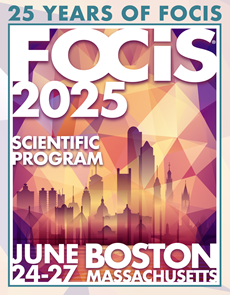Immunogenetics
Session: Vaccines, Emerging Pathogens & Post-infectious Syndromes
Germline Variants and Somatic Mosaic Chromosomal Alterations Affect COVID-19 Vaccine Immunogenicity, Infectious Diseases, and Autoimmune Diseases
Thursday, June 26, 2025
3:15pm - 3:30pm East Coast USA Time
Location: Salons F-G
Kyuto Sonehara – Graduate School of Medicine, the University of Tokyo; Yoshifumi Uwamino – Keio University School of Medicine; Ryunosuke Saiki – Kyoto University; Koichi Matsuda – Graduate School of Frontier Sciences, the University of Tokyo; Seishi Ogawa – Kyoto University; Ho Namkoong – Keio University School of Medicine
- YO
Yukinori Okada, MD, PhD
Professor
The University of Tokyo, Osaka University, RIKEN IMS
Bunkyo-ku, Tokyo, Japan
Presenting Author(s)
Abstract Text: Vaccine immunogenicity is influenced by the vaccinee’s genetic background. We performed GWAS of vaccine-induced SARS-CoV-2-specific IgG antibody titers and T-cell immune responses in Japanese cohorts (mRNA-1273 and BNT162b2, n=2086). We identify associations with SARS-CoV-2-specific antibody titers at the immunoglobulin heavy chain (IGH) and MHC locus, and associations with the T-cell responses at MHC. The lead variants at IGH contain a missense variant (rs1043109-C; p.Leu192Val) in the Immunoglobulin Heavy Constant Gamma 1 gene (IGHG1), which strongly decreases the antibody titers (β=-0.54) and is rarely present in Europeans, highlighting the importance of genetic studies in various populations. SARS-CoV-2-specific antibody serostatus data from the UK Biobank (UKB; N=152,906) independently reveal associations at the IGH, MHC, immunoglobulin kappa light chain and 16p11 locus. HLA imputation analyses in the Japanese cohorts pinpoint HLA-DRB1 as the strongest determinant of the antibody titers, and HLA-DRB1 and HLA-DPB1 as that of the T-cell responses within MHC. Blood proteome profiles (2,932 Olink Explore proteins) from 4,236 individuals demonstrate that antibody titer-associated variants modulate circulating immune regulators, including LILRB4 and FCRL6. In addition to germline mutations, age-related somatically expanded mosaic chromosomal alterations (mCA) affecting MHC and IGH impair SARS-CoV-2-specific antibody production. Furthermore, MHC/IGH-affecting expanded mCAs confer risk of infectious and immune diseases, such as sepsis and Graves’ disease, in Japanese and European biobanks (Ntotal=663,133). Expanded mosaic loss of sex chromosomes (X or Y) impact such phenotypes including rheumatoid arthritis. Our results underscore the contribution of both germline and somatic mutations to adaptive immunity functions.

